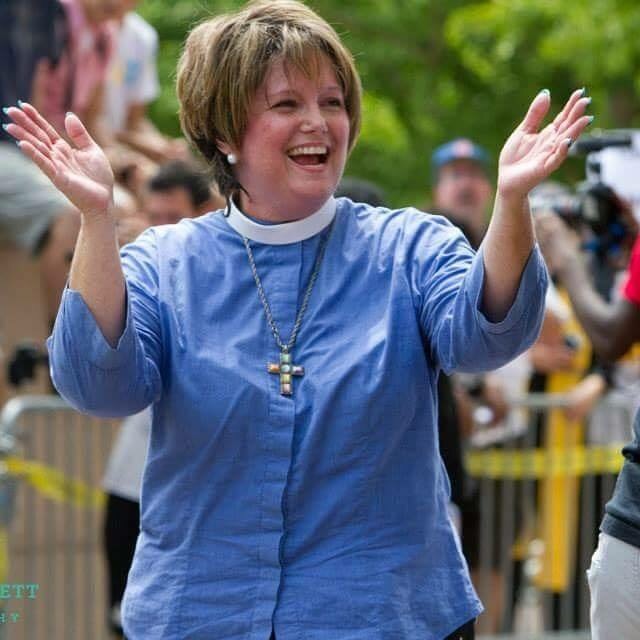By Rev. Dr. Renita M. Green, Contributing Writer
It’s hard to watch The Handmaid’s Tale without a chill creeping down your spine. My friend suggested I watch it, but to be honest, I have not wanted to watch this series. As I predicted about myself, there’s no watching it without feeling even more unsettled. From the dystopian setting to the eerie way the characters carry out their twisted version of morality. Set in a theocratic regime called Gilead, The Handmaid’s Tale paints a picture of what happens when religious extremism marries unchecked political power. The creepiest of it all is that as the show unfolds, it feels less like fiction and more like a cautionary tale we’ve already started to ignore.
It feels like we’re living through the slow, deliberate rise of Gilead—not in costume or pageantry, but in policy. Not as fiction, but as a steady erosion of rights, masked by political theater and moral posturing. What’s terrifying isn’t just the policies themselves, but the way disdain for basic humanity is being codified. Made into law. Preached from podiums. Wrapped in patriotic language and religious overtones. This government is manufacturing crises, and offering itself as the redeemer, offering salvation at the cost of obedience.
Holy Week holds up a painful, beautiful lens to all of this.
It’s the story of power challenged by love.
Of empire exposed by a suffering servant.
Of religious leaders—those who should have known better—missing the Messiah standing right in front of them.
It’s also the story of sleepy disciples in a garden, overwhelmed and unaware, while Jesus wrestled with the weight of what was to come. This is the moment that keeps echoing in my mind—the garden, the sleeping disciples, and the plea of Jesus: “Could you not watch with me one hour?” Paul echoes that same urgency in his letter to the Romans: “The hour has come for you to wake from sleep.”
Right now, the Church in America is at a crossroads. We can either keep hitting the snooze button or we can wake up. Being “woke,” in its purest, unpoliticized sense, means becoming alert to injustice, attuned to suffering, and aligned with the Jesus who flipped tables, called out hypocrisy, and centered the marginalized.
Holy Week reminds us that following Jesus isn’t about preserving power; it’s about laying it down. It’s not about defending tradition for tradition’s sake; it’s about resurrection. It’s about waking up to the systems we’ve helped build or stood silently beside—and choosing instead to stand in the messy, uncomfortable, liberating light of Christ.
Gilead didn’t rise overnight—
It started with silence.
With good intentions.
With comfortable theology that protected the powerful and shamed the vulnerable.
It started when people of faith looked away or said, “That’s not our fight.”
It started when people in some way said, “I don’t agree with their ways, but the reason is right.” When people decided, “There’s nothing I can do about it.”
The truth that Holy Week screams from the cross is that real power is found in surrender. Resurrection doesn’t come through control, but through costly love.
Those who truly believe in justice must ask ourselves uncomfortable questions about how we’ve participated in the very dynamics we criticize.
This is our moment to wake up—
Not to perform “wokeness”, but to embody the gospel.
Not to be loud, but to be faithful.
Not to tighten our grip, but to open our hands.
In this time, we must challenge ourselves to see the world more clearly—
and to see ourselves more honestly.
Because when we finally wake up, we won’t just be a church who resists injustice,
we’ll become the alternative.





